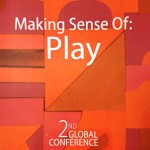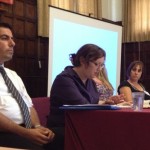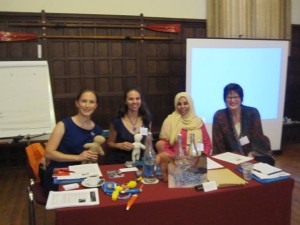 Two weeks later and I am ready to reflect on the the 2nd Global “Making Sense of: Play” Conference. In Part 1, I will focus on the conference content. Part 2 will be an exploration of Oxford and my temporary, self-granted status as an Oxford student. Business first:
Two weeks later and I am ready to reflect on the the 2nd Global “Making Sense of: Play” Conference. In Part 1, I will focus on the conference content. Part 2 will be an exploration of Oxford and my temporary, self-granted status as an Oxford student. Business first:
The majority of this post will appear in the August Newsletter of the US Play Coalition, however, since this is my personal space, I would like to candidly add that this conference was unlike any I have previously been to in both positive and less than positive ways. The diversity of the delegates in specialty, age, nationality, etc. gave me an opportunity to “probe the boundaries” as the organizers suggest. Should you have specific questions, a more detailed account is available from yours truly, but only by phone or in person. Now from the newsletter:
From July 22-24, 2013, I had the tremendous opportunity to attend and present at the 2nd Global “Making Sense of: Play” Conference. The conference was organized by Inter-Disciplinary.Net, a “forum for the exchange and interaction of ideas, research and points of view that bear on a wide range of issues of concern and interest in the contemporary world.”
A purposefully intimate gathering, all but one of the attendees presented and there were no concurrent sessions. This created an atmosphere of camaraderie and shared experience – a format that lent itself to meaningful dialogue. Furthermore, the flavor of the gathering was distinctly international with 14 countries represented, adding once again to the possibilities for new discoveries.

From the opening panel session on “Exploring the Borders of Play,” attendees were confronted with the idea that play is in decline. Presented in the same session were the notions that work is valued over play; play does not contribute to productivity; and play activities can only be engaged in when earned. Thus within a single session, we shared the foundations of the need for the US Play Coalition and the promotion of the value of play. I could not wait to share!
In the ensuing panels and conversations, we encountered play:
- In art through games like “The Exquisite Corpse”, Treasure-hunting and Artistic Encounters, Oulipo, and the Avant-Garde;
-

A typical panel from house left/stage right. In the written word through Japanese tanka and haiku, The Magus by John Fowles, Daniel Deronda by George Elliot, and the representation of girls and doll-playing across literature;
- In imaginary worlds in the minds of children (paracosms) and the creators of sandbox game narratives;
- In conflict including war, contested landscapes, and miscommunication;
- In city design through game invention, playgrounds, playstops, public space, museums, and gallery space;
- In the classroom in perceptions of the definition of play, learning through play, schemas of child development, and preparation of children from low-income families for school;
- In daily life as a personal attribute, in healthcare settings, as play with pets, and humor and the “yes, and” of improv comedy.
As you can see, the conference was a snapshot of many possibilities and interpretations of play. All were different, yet similar in their ability to be creative and connect disparate ideas to a single source: play. The discussion following each panel was likewise illuminating and invited further scaffolding of ideas.
As the only organization devoted to promoting the value of play present, it was a terrific opportunity to explain the mission, work, and play of the US Play Coalition, and to encourage the attendees to become more involved with us. I hope some of them will join us at our conference in February as we all continue to promote play in the numerous facets of everyday life. I will be sure to welcome them across the pond.
